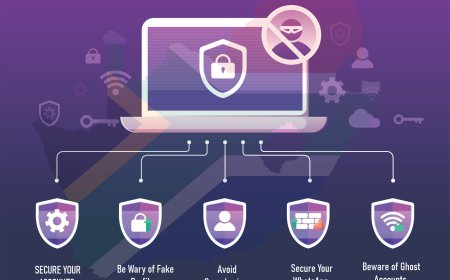Backlink Threats Exposed: Safeguarding Your Website from Cybersecurity Risks-Cyber Security Awareness Magazine
In the world of digital marketing, backlinks are often touted as one of the most important factors for improving a website's search engine optimization (SEO) and driving more traffic. However, what many website owners and marketers fail to recognize are the potential risks associated with backlinks.

Cybersecurity Threats One of the primary risks of backlinks is the potential for cybersecurity threats. Malicious actors can use backlinks to inject malware, viruses, or other malicious code into your website. This can happen if the website linking to you is compromised or if the link itself contains harmful content.
Once your website is infected, it can be used to spread the malware to your visitors, leading to data breaches, identity theft, and other serious consequences. Additionally, search engines may flag your website as unsafe, resulting in a significant drop in search rankings and traffic.
Bandwidth Theft Another risk of backlinks is the potential for bandwidth theft. Some websites may use your website's bandwidth to host their content, effectively stealing your resources and slowing down your site's performance.
This can happen if the backlink redirects visitors to a third-party website or if the linked content is hosted on your server. In either case, the additional traffic and resource usage can lead to increased hosting costs and decreased website performance for your visitors.
Reputational Damage Backlinks can also pose a risk to your website's reputation. If the website linking to you is known for producing low-quality, spammy, or unethical content, it can negatively impact your own reputation and credibility in the eyes of both search engines and your audience.
This can make it more difficult to build trust with your visitors and can also lead to a decrease in search rankings, as search engines tend to penalize websites associated with questionable or untrustworthy content.
Compliance and Legal Issues Depending on the nature of the backlink, there may also be compliance and legal issues to consider. For example, if the backlink is associated with illegal or unethical activities, such as copyright infringement or the promotion of illegal goods or services, your website could be held liable.
Additionally, some industries, such as finance or healthcare, have strict regulations regarding the types of content and links that can be associated with their websites. Failing to comply with these regulations can result in fines, legal action, or even the suspension of your website.
Mitigating the Risks of Backlinks To mitigate the risks associated with backlinks, it's essential to regularly monitor and manage the links pointing to your website. This includes:
- Conducting a backlink audit to identify any suspicious or potentially harmful links.
- Disavowing or removing any backlinks that pose a risk to your website's security, performance, or reputation.
- Implementing robust cybersecurity measures, such as regular website scanning and malware removal.
- Carefully vetting any new backlink opportunities to ensure they align with your website's content and branding.
- Educating your team on the importance of backlink management and the potential risks involved.
By taking a proactive approach to backlink management, you can protect your website from the various risks associated with this critical SEO strategy.
What's Your Reaction?
 Like
0
Like
0
 Dislike
0
Dislike
0
 Love
0
Love
0
 Funny
0
Funny
0
 Angry
0
Angry
0
 Sad
0
Sad
0
 Wow
0
Wow
0









































